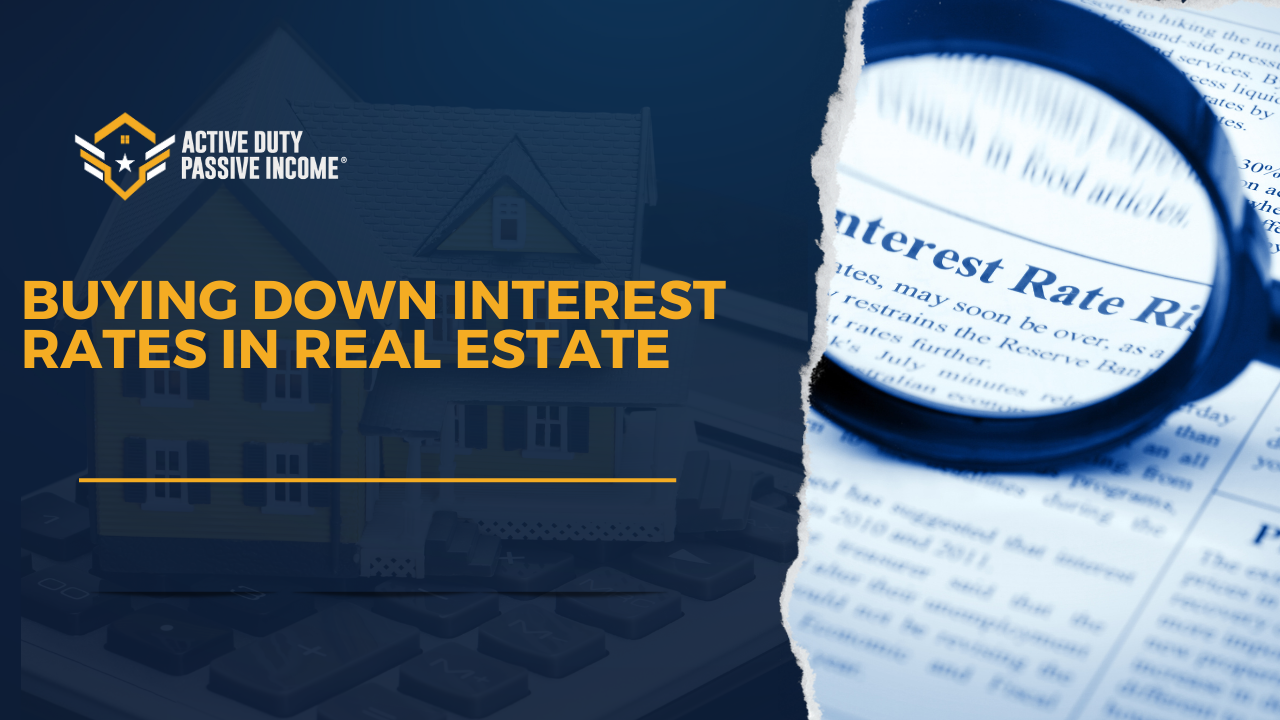In the dynamic world of real estate, savvy homebuyers are always on the lookout for strategies to optimize their investments. One such financial maneuver gaining popularity is the practice of “buying down interest rates.” In this comprehensive guide, we’ll delve into the intricacies of this technique, exploring what it means, how it works, and the potential benefits for homebuyers.
What is Buying Down Interest Rates?
Buying down interest rates refers to a strategic approach where a homebuyer pays an upfront fee to the lender in exchange for a lower interest rate on their mortgage. This upfront fee is often referred to as “points,” with each point representing 1% of the total loan amount. Essentially, buyers are investing more money at the outset to reduce their long-term interest expenses.
How Does It Work?
When a buyer opts to buy down interest rates, they are essentially prepaying interest upfront. This is achieved by paying points, with each point typically costing 1% of the total loan amount. For instance, on a $300,000 loan, one point would cost $3,000.
In return for this upfront investment, the lender reduces the interest rate on the mortgage. The extent of the interest rate reduction often depends on the number of points purchased. Each point typically lowers the interest rate by 0.25%, though this can vary among lenders.
Benefits of Buying Down Interest Rates:
- Lower Monthly Payments:
- The primary advantage of buying down interest rates is a reduction in monthly mortgage payments. With a lower interest rate, borrowers can enjoy more affordable payments, freeing up funds for other financial goals.
- Long-term Savings:
- While the upfront cost may seem significant, the long-term savings can be substantial. Over the life of the loan, the reduced interest rate can result in thousands of dollars in savings.
- Improved Affordability:
- Lower interest rates can increase a buyer’s purchasing power. With more favorable loan terms, homebuyers may qualify for a larger loan amount or find more affordable homes within their budget.
- Faster Equity Building:
- With lower interest rates, a higher percentage of each mortgage payment goes towards the principal rather than interest. This accelerates equity building and helps homeowners build wealth more quickly.
- Protection Against Rate Increases:
- In a market where interest rates are expected to rise, buying down rates can be a prudent move. By securing a lower rate upfront, buyers shield themselves from potential future rate hikes.
Considerations and Potential Drawbacks:
- Upfront Costs:
- The most significant consideration is the upfront cost of buying down interest rates. Buyers need to assess their financial situation to determine whether paying points aligns with their budget and long-term financial goals.
- Break-even Point:
- Buyers should calculate the break-even point—the point in time when the upfront cost is recouped through monthly savings. If the buyer plans to sell or refinance before reaching this point, buying down rates may not be cost-effective.
- Market Conditions:
- The decision to buy down interest rates should also consider current market conditions. If interest rates are already low, the potential savings may be limited.
- Loan Duration:
- The length of time a buyer intends to stay in the property is a crucial factor. Buying down interest rates is more beneficial for those planning long-term homeownership rather than short-term residency.
Buying down interest rates is a strategic financial move that can significantly benefit homebuyers in the long run. By understanding the intricacies of this approach, individuals can make informed decisions that align with their financial goals. As with any financial strategy, it’s essential to weigh the upfront costs against the potential long-term savings and consider individual circumstances and market conditions.








